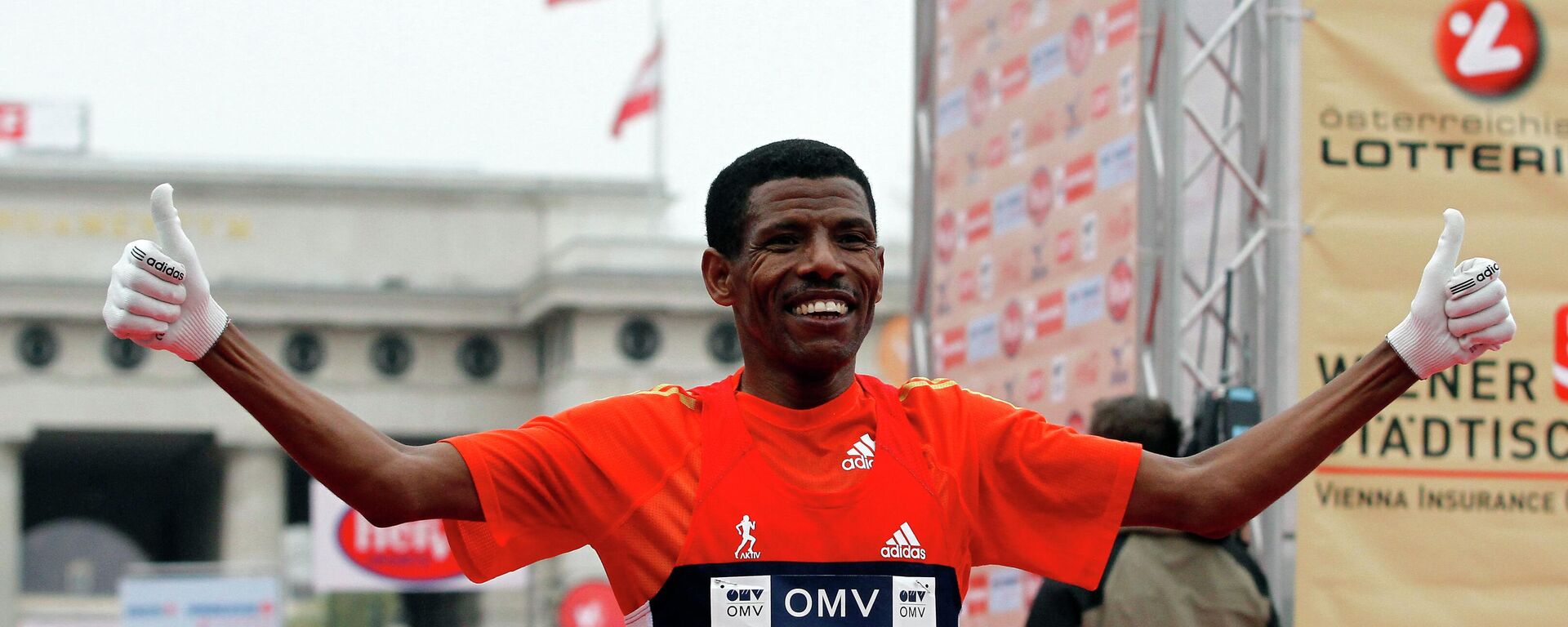https://en.sputniknews.africa/20231030/sas-caster-semenya-shifts-focus-from-olympics-to-court-fights-with-world-athletics-media-says-1063193908.html
SA's Caster Semenya Shifts Focus From Olympics to Court Fights With World Athletics, Media Says
SA's Caster Semenya Shifts Focus From Olympics to Court Fights With World Athletics, Media Says
Sputnik Africa
An international athletics governing body, World Athletics bans sportswomen with certain disorders of sex development (DSDs) from participating in some... 30.10.2023, Sputnik Africa
2023-10-30T15:22+0100
2023-10-30T15:22+0100
2023-10-30T15:22+0100
south africa
european court of human rights (echr)
paris
southern africa
sport
court
law
sub-saharan africa
https://cdn1.img.sputniknews.africa/img/07e7/0a/1e/1063196284_0:160:3072:1888_1920x0_80_0_0_bc17040e124253e0b40890a0d89938f9.jpg
South African middle-distance athlete Caster Semenya's main goal is no longer to win Olympics but to defeat in court World Athletics, which introduced rules preventing the female athletes with DSDs from competing unless they medically suppress their naturally high testosterone levels, Semenya told the British media.Moreover, although the athlete continues to train, it seems that she finished her sports career and wants to focus on her legal battle to eliminate the regulations, while coaching, the outlet revealed.In addition, the athlete reportedly underlined that the rulings affect only Africans and Asians and are a "racial issue."According to the outlet, World Athletics accepted new regulations regarding the athletes with DSD in order to "protect the female category."Furthermore, the spokesperson added that DSD conditions are found all over the world, however, in Africa and other developing areas they are revealed not at birth as usual but later, the report noted.Over a decade ago, Semenya was subject to sex testing after winning the women's 800m World Championship in 2009. As the athlete's condition was revealed, she was told by the World Athletics, which was then called International Association of Athletics Federations (IAAF), that she would have to suppress her testosterone using medication in order to take part in competitions. In 2011, Word Athletics introduced the rules limiting the participation of female athletes with hyperandrogenism, a condition characterized by higher than usual levels of testosterone. In early 2018, the IAAF withdrew their Hyperandrogenism Regulations and a month later introduced their new DSD Regulations with a testosterone limit for women with hyperandrogenism twice as low as it used to be. In June 2018, Semenya challenged the IAAF rules, calling them "discriminatory, irrational, [and] unjustifiable." However, her claim was dismissed. In 2021, she again appealed the case to the European Court of Human Rights, which in July 2023 ruled in her favor. Nevertheless, the court decision did not overturn the regulations themselves.
https://en.sputniknews.africa/20230808/top-10-african-athletes-holding-guinness-world-records-1061154918.html
south africa
paris
southern africa
Sputnik Africa
feedback@sputniknews.com
+74956456601
MIA „Rossiya Segodnya“
2023
Rasina Musallimova
https://cdn1.img.sputniknews.africa/img/07e7/0a/17/1063019139_0:0:646:646_100x100_80_0_0_348c74b69cf86748a53875f8148a2f85.jpg
Rasina Musallimova
https://cdn1.img.sputniknews.africa/img/07e7/0a/17/1063019139_0:0:646:646_100x100_80_0_0_348c74b69cf86748a53875f8148a2f85.jpg
News
en_EN
Sputnik Africa
feedback@sputniknews.com
+74956456601
MIA „Rossiya Segodnya“
Sputnik Africa
feedback@sputniknews.com
+74956456601
MIA „Rossiya Segodnya“
Rasina Musallimova
https://cdn1.img.sputniknews.africa/img/07e7/0a/17/1063019139_0:0:646:646_100x100_80_0_0_348c74b69cf86748a53875f8148a2f85.jpg
south africa, european court of human rights (echr), paris, southern africa, sport, court, law
south africa, european court of human rights (echr), paris, southern africa, sport, court, law
SA's Caster Semenya Shifts Focus From Olympics to Court Fights With World Athletics, Media Says
An international athletics governing body, World Athletics bans sportswomen with certain disorders of sex development (DSDs) from participating in some contests in the female classification unless they undergo medical treatment. This prompted South African runner Caster Semenya with DSD to engage in a legal battle with the organization.
South African middle-distance athlete Caster Semenya's main goal is no longer to win Olympics but to defeat in court World Athletics, which introduced rules
preventing the female athletes with DSDs from competing unless they medically suppress their naturally high testosterone levels, Semenya told the British media.
"My last chance to win at the Olympics was in 2016 – Paris [Olympic Games 2024] is not my goal. It is more about winning my battles against the authorities and me fighting for what is right," she was quoted by the media as saying.
Moreover, although the athlete continues to train, it seems that she finished her
sports career and wants to focus on her legal battle to eliminate the regulations, while coaching, the outlet revealed.
"In running, I have achieved everything I ever wanted. They have never stopped me from being the great athlete I am. I went four years unbeaten; I've done my part. I fight for what is right, for humanity and for inclusivity. And I fight for all women in the world. This young, upcoming generation cannot face the same scrutiny, the same judgement. They must be treated right," Semenya highlighted.
In addition, the athlete reportedly underlined that the rulings
affect only Africans and Asians and are a "racial issue."
"There is no pink skin person who is affected by it (the regulations). It is only brown-skinned females. That is the simple truth. It targets only Africans and Asians. So, you have to say, is this in the best interests of women’s sport, or in the best interests of certain women?" she noted.
According to the outlet, World Athletics accepted new regulations regarding
the athletes with DSD in order to "protect the female category."
"World Athletics has only ever been interested in protecting the female category. If we don’t, then women and young girls will not choose sport. That is, and has always been, the Federation’s sole motivation," a spokesperson for the sports body was cited by the media as saying.
Furthermore, the spokesperson added that DSD conditions are found all over the world, however, in
Africa and other developing areas they are revealed not at birth as usual but later, the report noted.
"DSD conditions occur all around the world and are usually diagnosed at birth. In Africa, like in other developing areas or countries, the diagnosis often comes later because there is a lack of post-natal monitoring and checks. This occurs for many reasons, and much is being done in some countries to address this." the spokesperson said.
Over a decade ago, Semenya was subject to sex testing after winning the women's 800m World Championship in 2009. As the athlete's condition was revealed, she was told by the World Athletics, which was then called International Association of Athletics Federations (IAAF), that she would have to suppress her testosterone using medication in order to take part in competitions.
In 2011, Word Athletics introduced the rules limiting the participation of
female athletes with hyperandrogenism, a condition characterized by higher than usual levels of testosterone.
In early 2018, the IAAF withdrew their Hyperandrogenism Regulations and a month later introduced their new DSD Regulations with a testosterone limit for women with hyperandrogenism twice as low as it used to be.
In June 2018, Semenya challenged the IAAF rules, calling them "discriminatory, irrational, [and] unjustifiable." However, her claim was dismissed. In 2021, she again appealed the case to the European Court of Human Rights, which in July 2023 ruled in her favor. Nevertheless, the court decision did not overturn the regulations themselves.



